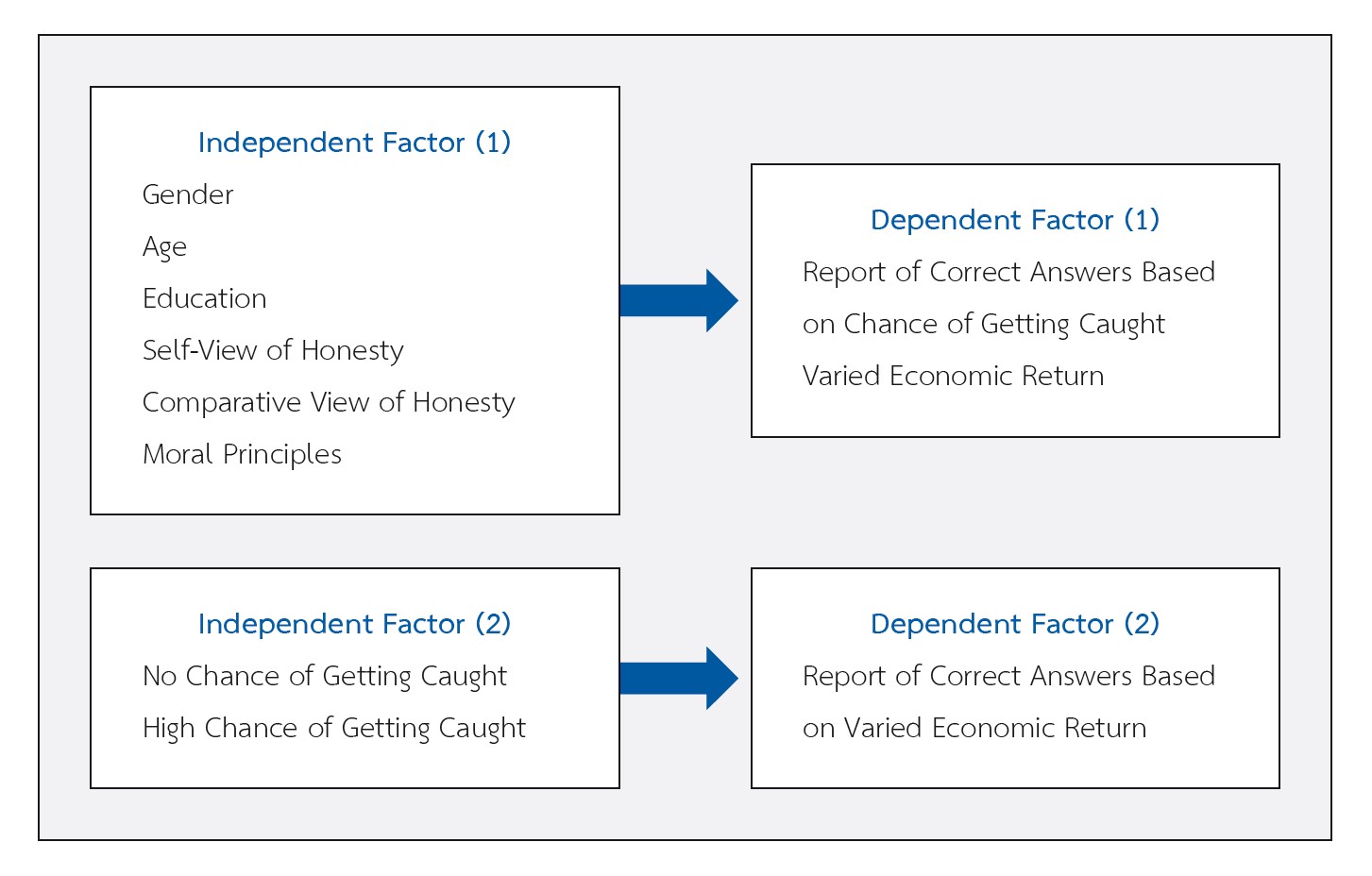Exploring Economic Loss and Gain Perspectives on Moral Decision-Making
Keywords:
Moral behavior;, Ethical decision-making;, Ethical TrainingAbstract
The study aims to collect primary and secondary data on the influence of economic return and dishonest behavior. Combining the noted concepts of Gary Becker and Dan Ariely, the researcher designed an online survey and collected 393 responses from undergraduate and graduate students in Thailand. A Chi-Square Test of Independence shows that the 21-30 age group, moderate view of self-honesty, similar-to-other view of honesty, and teleology or result-base moral principles statistically correlate with a high report of more than 50% correct answers when a low risk of getting caught is present. However, when the risk of getting caught increases, the over-reports of having more than 50% correct decreases significantly. Interestingly, the proportion of subjects who reported having % correctness did not differ when the reward or economic gain increased, aligning with Ariely's fudge factor. A categorical regression found a minimal prediction effect of respondent profiles on the ethical decision. A repeated study with a more diverse demographic and expanded sample size will help develop a greater understanding and implications for practices on ethical decision factors and behaviors. Strengthening all involved law enforcement impetus by signaling a specific and increasing risk of getting caught is as necessary as any severe punishments soon follow.
References
Ariely, D. (2013). The Honest Truth about Dishonesty: How We Lie to Everyone--Especially Ourselves. London: Harper Collins Publishers.
Becker, G. (1974). Essays in the Economics of Crime and Punishment: Crime and punishment: An Economic Approach. The National Bureau of Economic Research.
Ferrel, O.C., Fraedrich, J, and Ferrel, L. (2019). Business Ethics: Ethical decision making and cases. 12th Edition. Boston: Cengage Learning, Inc.
Middleton, K. (September 8, 2016). Ethics Explainer: The Sunlight Test. Retrieved from https://ethics.org.au/ethics-explainer-the-sunlight-test/
Ohrner, F. (2022). Risks of getting caught and its impact on residential burglaries. Retrieved from https://www.diva-portal.org/smash/get/diva2:1740093/FULLTEXT01.pdf
SMORC. Retrieved from http://www.scienceofpeople.com/2015/03/the-science-of-lying/

Downloads
Published
How to Cite
Issue
Section
License
Copyright (c) 2024 NIDA Business School, National Institute of Development Administration

This work is licensed under a Creative Commons Attribution-NonCommercial-NoDerivatives 4.0 International License.



